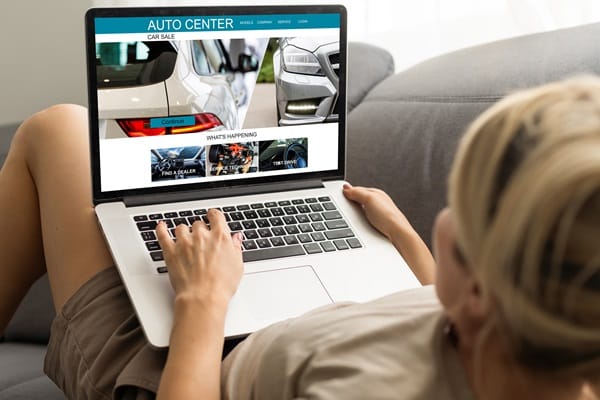Buying a car is one of the significant investments you make in life, yet it’s easy to fall into common traps that can turn this exciting process into a costly mistake. Many car shoppers focus solely on the excitement of a new vehicle and overlook key aspects that lead to buyer’s remorse. This post will explore the most frequent pitfalls in car shopping and provide actionable advice to help you navigate these challenges. By understanding these traps, you can make a more informed decision and ensure that your investment is sound and satisfactory.
Contents
Overlooking Total Cost of Ownership

When shopping for a new car, many buyers focus solely on the sticker price, neglecting to consider the total cost of ownership, which includes additional expenses like insurance, maintenance, and depreciation. These overlooked costs can dramatically affect your budget over the lifespan of your vehicle. It’s crucial to use online tools that calculate the total cost of ownership, providing a comprehensive understanding of what the car will really cost you annually. Consider factors such as fuel efficiency and repair costs, which vary significantly between models. Selecting a car known for its durability and low maintenance costs can lead to substantial savings over time.
Moreover, potential buyers should request a breakdown of these costs at dealerships to make a well-rounded decision. This foresight can prevent financial strain from unexpected vehicle-related expenses. Always inquire about resale value and typical repair costs associated with different models. This approach ensures that you don’t just focus on the purchase price but also on the ongoing costs of owning the car. Planning ahead can significantly enhance your long-term satisfaction and financial stability.
Getting Caught in Financing Folly

Attractive financing options can appear tempting at first glance, but they may not always be in your best interest. Dealers often offer plans that can lead to long-term financial strain due to high-interest rates and extended loan terms. Understanding the terms of your financing agreement is crucial to avoid paying significantly more than your car’s worth. Many buyers are drawn to low monthly payments without realizing that longer loan terms mean more paid-in interest overall. It’s important to negotiate financing terms and seek pre-approval from independent financial institutions to compare rates.
Additionally, be wary of financing that includes non-essential add-ons such as extended warranties or service packages, which can further inflate costs. Shopping around for the best financing deal outside the dealership often leads to better interest rates and terms. Ensure that you fully understand what is included in your financing package and assess whether these add-ons are necessary for your situation. Avoiding these common financing pitfalls requires knowledge and careful consideration. This diligence can save you from future financial headaches and keep your costs in line with your expectations.
The Perils of Not Doing Research

Entering a dealership without prior research is a common trap that can lead to making an uninformed purchase. The excitement of getting a new car can overshadow the necessity of comparing prices and reading reviews, putting buyers at a disadvantage and making them more susceptible to poor decisions. It is essential to spend time looking at various models, understanding their market value, and reading consumer feedback. Knowing current market conditions, such as inventory shortages and popular models, can prevent overpaying. Knowledge of the best times to buy, like end-of-model-year sales, can result in significant savings.
Moreover, research equips you not only with the knowledge of what to buy but also when and where to buy it, maximizing your chances of getting a good deal. Understanding the features and reliability of different cars can ensure you make a purchase that suits your needs and lifestyle. Don’t rush this process; take your time to gather all the necessary information. Being well-informed can empower you to negotiate better deals and avoid models with known issues. This preparedness can lead to a more satisfying and economical car ownership experience.
Misjudging Needs vs. Wants

In the excitement of car shopping, it’s easy to get swept away by features and enhancements that look appealing but may not be necessary. This misjudgment of needs versus wants can lead to purchasing a vehicle that is ill-suited to your daily requirements or significantly over your budget. It is crucial to make a list of essential features based on your lifestyle, such as fuel efficiency, cargo space, or safety features, rather than optional luxuries. This strategy helps focus your search and keeps you grounded in practicality rather than being tempted by the latest technology or stylish extras that inflate the cost.
Furthermore, emotional decision-making can cloud your judgment, pushing you towards a more expensive or less practical vehicle. To avoid this, set a clear budget before stepping into a dealership and stick to it, regardless of tempting upgrades or persuasive sales tactics. Bring a friend or family member who can help keep you objective and remind you of your actual needs. Prioritizing practicality over desire is not only financially wise but ensures the vehicle you purchase truly fits your everyday life. Making informed decisions based on need will safeguard you from buyer’s remorse and financial strain.
Skipping the Test Drive

Skipping the test drive is a surprisingly common mistake among car buyers, often leading to dissatisfaction with the purchase. A test drive is a critical opportunity to check if the car meets your expectations in terms of comfort, handling, and functionality. It allows you to assess everything from how the car feels on the road to the ease of using its features. Ignoring this step can result in discovering uncomfortable truths about the vehicle once it is too late. Always insist on a test drive, no matter how good the car looks on paper, to ensure it truly suits your driving style and comfort needs.
Moreover, during a test drive, pay attention to details like the responsiveness of the brakes, the smoothness of the gear shift, and the visibility from the driver’s seat. These are aspects you will deal with every day, and discomfort or issues can lead to dissatisfaction and regret. It is also wise to test the vehicle in various driving conditions, such as on highways and hills, to gauge its performance comprehensively. Listen for any unusual noises and feel for any vibrations or handling issues, which could indicate underlying problems. This proactive approach will help you make an informed decision and avoid costly mistakes.
Ignoring the Pre-Purchase Inspection

Many buyers, especially those purchasing used cars, fall into the trap of skipping the pre-purchase inspection. This step is vital as it can uncover potential mechanical problems or previous damage that may not be visible during a casual walkthrough or even a test drive. Hiring a qualified mechanic to inspect the car before finalizing the purchase can save you from significant expenses and headaches later on. This inspection should cover everything from the engine’s condition to the electrical systems and chassis integrity. It’s a small investment that can prevent buying a lemon, ensuring the vehicle is in good condition, or identifying issues that could be used to negotiate a lower price.
The second paragraph focuses on the importance of considering the inspection’s findings when making your decision. If the inspection reveals substantial issues, be prepared to walk away from the deal or negotiate repairs and a price reduction. Many sellers will be open to negotiations if it means securing the sale and knowing the car’s true condition gives you leverage. Additionally, the inspection report can serve as a valuable reference for future maintenance if you decide to go through with the purchase. Understanding the potential long-term costs associated with the car’s condition can dramatically influence your buying decision and ensure you are prepared for any upcoming expenses.
Falling for the Upsell

Dealerships are adept at upselling additional features and packages during the sales process, which can significantly increase the overall cost of the vehicle. It’s important to recognize when you’re being offered unnecessary extras like extended warranties, cosmetic add-ons, or premium service plans. These options, while potentially beneficial, often carry high profit margins for the dealer and can be costly for the buyer. Before visiting the dealership, decide which, if any, additional features are essential for you and set a firm budget for extras.
Always take the time to consider the long-term value of these add-ons. Ask yourself whether they are truly necessary or just nice to have. If you’re unsure about an upsell item, take a step back and consult unbiased sources or delay the decision until you can research the benefits and costs thoroughly. Sticking to your original car-buying plan and budget can protect you from overspending on features that don’t provide enough value, ensuring you make financial decisions that align with your needs and resources.
Steer Clear of These Common Pitfalls
As you navigate the complexities of car shopping, keeping these pitfalls in mind will help you make a more thoughtful and informed decision. Approach the process with patience and diligence, and remember that the goal is not just to buy a car but to invest in a vehicle that meets your needs, fits your budget, and provides value long after you drive off the lot. Stay informed, stay objective, and let these guidelines steer you clear of common mistakes.


